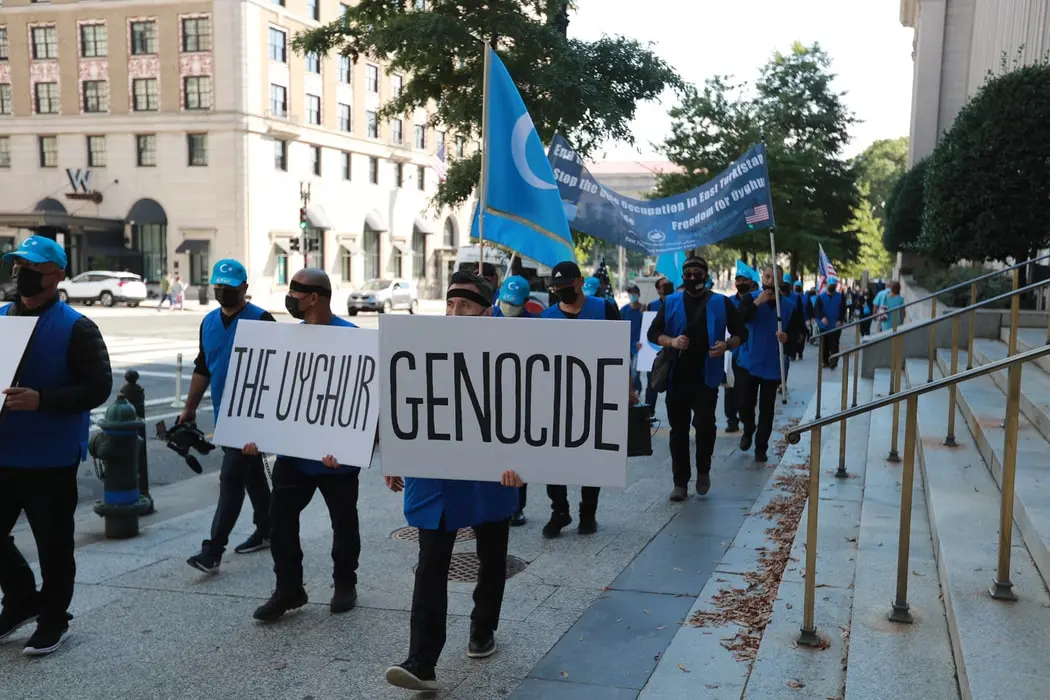UK (Parliament Politics Magazine) – UK cross-party group considers new legal duty to prevent genocide, aiming to shift responsibility from global courts to domestic mechanisms.
As reported by The Guardian, a cross-party panel led by Lady Helena Kennedy, comprising UK politicians, lawyers, and academics, will review the state’s role in preventing genocide. The group aims to shift the responsibility from international courts to domestic decision-makers.
How will the UK strengthen its role in upholding international law?
According to the Standing Group on Atrocity Crimes, its creation was not triggered by specific events like Gaza or Xinjiang. The group emerged from growing concerns over the global rise in such crimes and the declining influence of international law.
Observers see this move as part of a broader campaign to weaken the role of international law in the UK. Supporters argue that figures like Attorney General Richard Hermer are being unfairly targeted to undermine legal principles.
The effort aims to push ministers to prioritise atrocity prevention more clearly within the Foreign Office.
Why is the UK hesitant to make genocide determinations?
The Foreign Office has created a unit to prevent atrocities, but it lacks both prominence and proper funding. Ministers insist that determining genocide falls under the jurisdiction of international courts, not the UK government.
The recent arms export case revealed that ministers received confidential legal advice on genocide assessments. Officials concluded that Gaza did not meet the threshold for genocide in 2023.
The US State Department declared the situation in Sudan a genocide without waiting for international rulings.
Ministers’ responsibilities to prevent genocide are sometimes challenged in legal disputes. These duties come from international laws established after the Second World War.
Some UK legal advisers have argued that action is only required once genocide is formally confirmed. The international court process takes time, giving ministers room to delay or avoid a direct response.
The UN General Assembly is reviewing a proposal to launch a duty to prevent crimes against humanity. The move increases pressure on governments to take earlier action against mass atrocities.
What did Kennedy say about the UK’s weak genocide response?
Lady Helena Kennedy slammed the UK’s approach as “partisan, piecemeal and protracted.”
She said,
“We are witnesses to harrowing and destructive images daily of atrocity crimes despite the apparent commitment of states to the international rule of law.”
Ms Kennedy stated,
“The rationale for why the standing group’s key issues list focuses on preventing genocide is that there is a binding and enforceable legal obligation under a treaty, the genocide convention, on all states to prevent genocide the ‘instant it learns of the serious risk’ and which requires it to use ‘all means reasonably available to it’ in order to prevent or stop ongoing harm.”
She added,
“A similar obligation to prevent exists under the torture convention. Over the coming years, such an obligation may be introduced in relation to crimes against humanity.”
Which key figures are backing the UK’s genocide prevention push?
The wide-ranging support behind the initiative is reflected in its cross-party advisory group. The committee includes figures from diverse political backgrounds:
- Lord David Alton
- Lord Alfred Dubs
- Baroness Arminka Helić
- Baroness Fiona Hodgson
- MP Richard Foord
- MP Blair McDougall
- MP Brendan O’Hara
- Baroness Liz Sugg
Blair McDougall’s views on the failure to prevent atrocities
Blair McDougall said,
“Eighty years ago, the world came together to design institutions which sought to deter the crime of aggression, protect civilians and guarantee human rights. As we prepare to mark that anniversary, we must acknowledge that that system has too often failed to prevent or punish atrocities.”
He added,
“Our generation of leadership must bring the same determination as shown by those after the Second World War that atrocity crimes should be banished to history.”
How would the UK’s proposed genocide bill change decision-making?
A key focus for the standing group will be the Genocide Determination Bill. The bill seeks to establish a clear legal process to identify and prevent genocide.
Independent peer David Alton introduced the bill in the House of Lords in 2022. The proposal lets Parliament advise on genocide if the Foreign Secretary doesn’t act.
If a British court determines that genocide is occurring or imminent, the Foreign Secretary must respond. They are required to detail the government’s intended actions and identify the legal forums it will turn to.
Major genocides
- Armenian Genocide – Ottoman Empire
- Holocaust – Germany and Nazi-occupied Europe
- Cambodian Genocide – Cambodia
- Rwandan Genocide – Rwanda
- Bosnian Genocide – Bosnia and Herzegovina
- Darfur Genocide – Sudan
- Yazidi Genocide – Iraq
- Rohingya Genocide – Myanmar
- Herero and Namaqua Genocide – Namibia
- East Timor Genocide – Indonesia/East Timor

